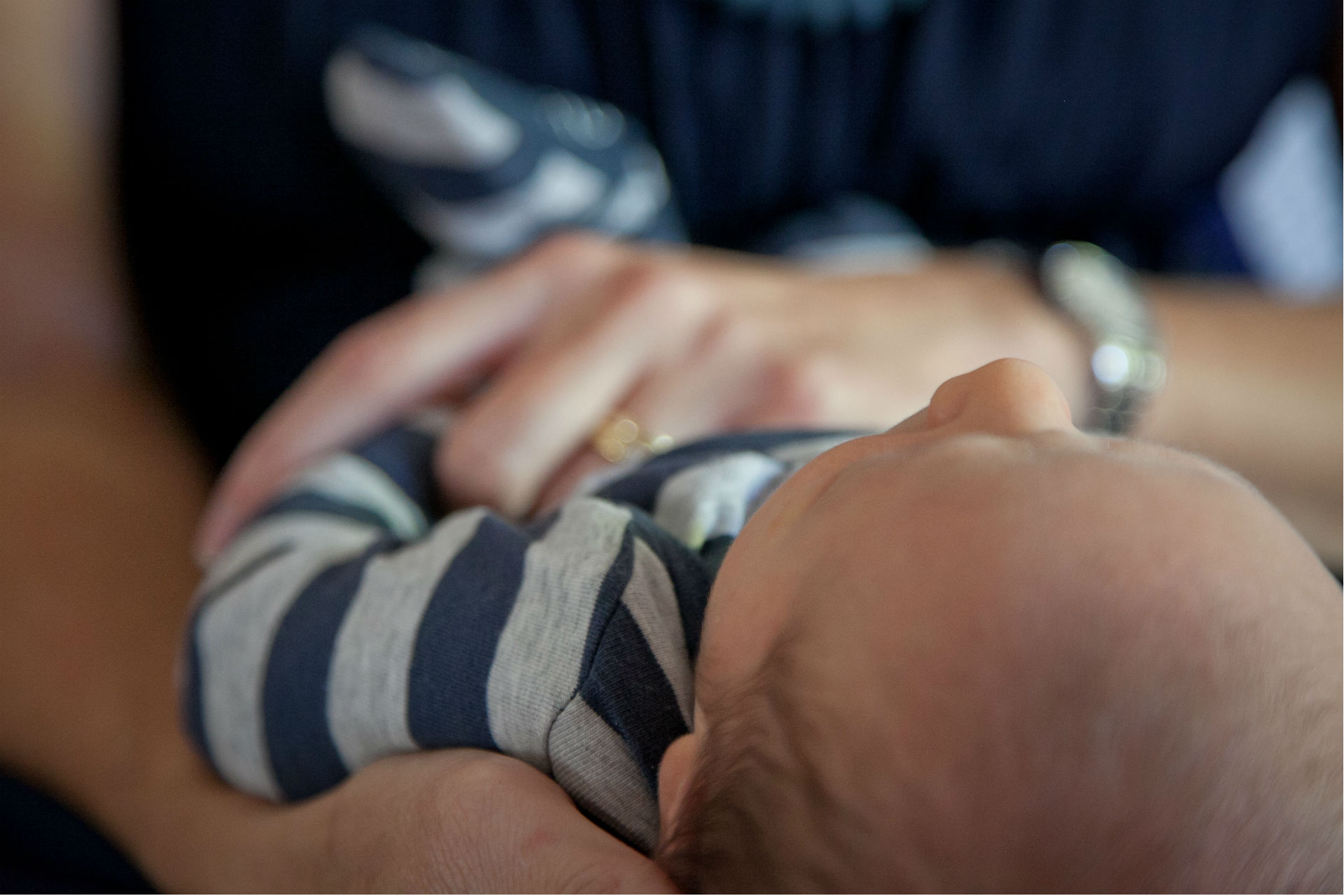Before I had my son, I assumed I would stop breastfeeding as soon as his first tooth broke through. One year and seven teeth later, I’m still happily nursing. So, I suggest going into breastfeeding with no preconceived notions. Sure, the idea of feeding your child from your own body may seem alien or even bovine, but if it works for both you and your baby, breastfeeding can be beautiful.
Breastfeeding From Birth To One Year
It’s recommended that breastfeeding is initiated within a half hour of birth and breast milk is the only food baby gets for six months.
Of course, it’s totally normal to need a little—or a lot of—help getting baby to latch correctly and finding the most comfortable position for both of you. Don’t be afraid to ask for assistance while you’re in the hospital when it comes to latching or finding a comfortable nursing position. Look up local breastfeeding clinics, public health telephone lines and lactation consultants for hire for when you take baby home.
Read more: 11 benefits of breastfeeding
What To Expect
A little crying—from baby and probably from you as well. While it’s convenient and super healthy, breastfeeding isn’t always easy. You may both cry when your newborn enthusiastically latches but misses your nipple. Babies have surprisingly strong suction and you may be left with a hickey. And even the perfect latch won’t feel totally natural at first. But don’t worry, babies cry and so do postpartum moms, so a few tears are not a big deal.
Benefits
- Colustrum (the rich milk your body produces in the first few days after birth) and breast milk contains the perfect balance of nutrients for your baby.
- Breast milk protects against illness, disease and may even prevent allergies.
- Studies show that breastfed babies have higher IQs and may become more independent and confident.
- Breastfeeding can protect you against breast and ovarian cancer.
- Producing breast milk burns calories and helps you lose baby weight.
- It’s super convenient. Mom of three Blessyl Buan says, “It's very easy to feed on demand without the extra steps of preparing and sterilizing bottles and it’s a great way to calm my son when he is in pain or uncomfortable.”
- It’s a wonderful way to bond with your baby.
Breastfeeding beyond One Year
Okay, so you don’t want to be that woman in Starbucks whose four-year-old is pulling at her blouse and asking for “booby juice”. You don’t have to be. Despite the fact that the majority of Canadian women wean their children by one year, breastfeeding to two years or beyond is recommended by CPS and the World Health Organization. You may experience a few awkward moments. “There was definitely the challenge of my daughter wanting to breastfeed at the most inappropriate times but this became easier to control,” says Taya Griffin, a homeopathic practitioner and lactation counsellor. “A toddler can begin to understand limits and when they get older you can negotiate with them.”
Dr. Catherine Pound, a pediatrician at the Children’s Hospital of Eastern Ontario and assistant professor at the University of Ottawa, identifies criticism or judgment as the biggest challenge. “Some people feel that it’s inappropriate,” she says. “Our society is not as open as it should be. We see extended breastfeeding all over the world and people are just as well-adjusted there as they are here.”
According to Dr. Pound, there is some research showing that the duration of ear infections is shorter in toddlers who are breastfed, the chances of developing leukemia and lymphoma are decreased, and mom is less likely to develop premenopausal breast cancer. Plus, says Taya, “Studies show that the attached relationship leads to a more independent and interdependent child with less anxiety and depression.”
Extended breastfeeding isn’t just for stay-at-home moms. By age one, your child should be eating a variety of foods, so breastfeeding once or twice a day, when it’s convenient for you, is plenty (although if you are at home, the number of times a day you breastfeed is up to you and baby). You can supplement during the day with homogenized milk up to two years and one percent milk after that.
And what about Biting?
Dr. Pound says that biting can be stopped, just like any unwanted behaviour, with a little discipline. “When the child bites, mom says no and takes the breast away,” she says. She suggests offering something else for your toddler to chew on.
Extended breastfeeding isn’t for everyone. It’s a personal choice; any length of time you choose to breastfeed is better than nothing. But nursing your toddler can actually be convenient. Taya says that breastfeeding through her daughter’s second year meant no such thing as Terrible Twos. “Breastfeeding became a way to soothe hurts, quell boredom and show love,” she says.
Originally published in 2013.










